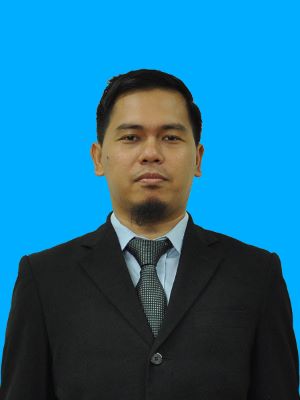A Decade of German Engineering Education Collaboration: Past, Present and Future
The year 2020 marks a milestone in the history of academic collaboration between Universiti Malaysia Pahang (UMP) and its German partners, the Karlsruhe University of Applied Sciences (HsKA) and Reutlingen University (HsRT). Back in 2009, the Malaysian Government instructed the Malaysian Technical Universities Network (MTUN) to model their programmes similar to the Fachhochschule programme in Germany. Unhesitatingly, UMP took the challenge and began the mission by visiting HsKA on 23 November 2009. Both parties had a mutual interest and signed a letter of intent, marking the initial step of the collaboration. On the next day, UMP paid a visit to the Department of International and EU-Affairs, Ministry of Science, Research and the Arts, Baden-Württemberg, Stuttgart.
From 2010 onwards, more success stories were recorded. It started with an academic visit from UMP to HsKA to discuss details on curriculum structures, followed by a roundtable discussion with the CEOs of German companies operating in Malaysia to obtain feedback from the industry. It was chaired by the German Ambassador himself, H.E. Dr. Guenter Gruber at the German Ambassador Residence, Kuala Lumpur. The most memorable moment was the memorandum of understanding (MoU) signing ceremony between UMP and HsKA that was held on 27 May 2010 which was witnessed by Dato’ Seri Mohamed Khaled bin Nordin, the Minister of Higher Education and H.E. Dr. Guenter Gruber. The MoU main objective was to offer a dual degree bachelor programme at UMP. Every student who is enrolled in the programme will obtain a dual-award degree from both UMP and HsKA.
In September 2010, UMP received the first batch of students for its B.Eng. Mechatronics programme and two years later, in 2012, the first batch of students for B.Eng. Automotive programme registered. The journey did not stop there. UMP with great vigour expanded another collaboration with another university in Germany. In June 2014, UMP successfully secured a collaboration with Reutlingen University through an MoU signing event. In 2015, UMP welcomed the first batch of students for its Bachelor of Business Engineering programme.
Throughout the years of collaboration, there are 164 UMP students conferred with the engineering degree — 79 of them are Mechatronics graduates, 56 from the Automotive programme and the remaining 29 are the Business Engineering graduates. They are now the alumni of UMP German degree programmes, serving the country in the public agencies and private companies, as well as local and multinational industries.
Besides that, these students are given the opportunity to pursue their studies in the EU4M, a two-year Erasmus Mundus Joint Master Degree in Mechatronics Engineering programme. The EU4M programme offers a high-quality education in Mechatronics, responding to the needs of industry and academia by offering a truly integrated approach to the different areas of Mechatronics. As a result, the experience gained by our students serves as a turning point in their personal and professional growth, moulding them to become committed professionals with a global mindset.
In November 2019, another memorable moment was captured when UMP and the Malaysia Automotive, Robotics and IoT Institute (MARii) signed a memorandum of understanding to collaborate and offer a master dual-award programme. Together with HsKA, UMP and MARii could provide a platform especially for working adults to enhance their professional knowledge of recent advances in vehicle-mechatronic technology which is in line with the National Automotive Policy (NAP 2020).
With the tagline “We Produce Malaysian–German Engineers” and successful collaborations with HsKA and HsRT, as well as the strong support from the German Embassy and agencies, UMP has managed to cooperate in various aspects with German industrial key players in Malaysia such as Mercedes-Benz, Volkswagen, BMW, Robert Bosch, Muehlbauer Technologies, Elektrisola, BASF, and other prominent German companies through the roles played by the German Academic Collaboration Centre (GACC). The GACC is in charge of managing all matters regarding the collaborative projects between UMP and the German companies.
Furthermore, the GACC is responsible for developing marketing strategies aimed at attracting national and international private students to enrol in these unique programmes. In the future, UMP intends to offer at least six new programmes. These additional programmes will be focusing on the specialised areas of electrical, chemical, and data science.
In conclusion, Malaysia and Germany, in general, have established close ties across the board, be it in politics, trade and commerce, cultural exchange, and cooperation in education, as well as in other various fields.

The writer is a Senior Executive at the German Academic Collaboration Centre (GACC), Universiti Malaysia Pahang.
By: Muhammad Hafiz Aswad Bin Ahmad Kamal
E-mail: mhafizaswad@ump.edu.my
- 427 views









